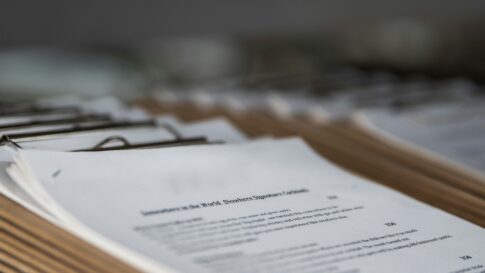- On 7 October 2022, Amazon issued full refunds to a rogue buyer who had committed a swap-out return fraud, claiming that the item s/he received was not as described on the website. In response to the Claimant, who claimed that the item had been swapped by the rogue buyer, Amazon stated: ‘We provide refunds only based on comments from buyers. Furthermore, we do not verify the authenticity of these comments.’ Consequently, it rejected the Claimant’s request for reimbursement (Complaint p. 34 (2) i).
- If sellers ask Amazon to be responsible for their sales from storage through to dispatch of their items, they are required by Amazon to register the size and weight of the packaged items so that Amazon can calculate storage and delivery charges (Claimant’s Exhibit 188). However, the registered size is not simply self-reported – it is also calculated by Amazon when the goods are received in its warehouses. Hence, there was a post from a seller on the Amazon Seller Forum complaining that Amazon calculated their items as being larger than the actual size. They stated that they cannot accept Amazon’s decision, and had asked the company to recalculate (Claimant’s Exhibit 189).
- The Claimant found that the item involved in the swap-out return fraud (Laura Ashley curtains in a dove grey colour) had actually been sold on a marketplace. The item which the Claimant had sold [Reference Material 1] and the item which was returned as a swap-out return fraud [Reference Material 2] differed completely in terms of design, colour, and fabric. Because the package of the item which the Claimant had sent to the Amazon warehouse was transparent, it was easy to see that the content was different when the item was returned. Moreover, the item involved in the swap-out return fraud was much lighter (1.6 kg) than the item that was registered for storing (2.5kg) in the warehouse.
[Reference Material 1]


The heavier the weight, the more expensive it is to store an item in Amazon. Therefore, there would have been no logical reason for the Claimant to report to Amazon that the item weighs more than it actually does. Although the Claimant provided sufficient evidence (Claimant’s Exhibit 25, 1) to prove the swap-out return fraud alongside this fact, Amazon refused to cooperate in any investigation. Amazon not only provides a place to sell as a platformer, it also sells items. Hence, it is obvious that Amazon would maintain records of packaging to prove there is no mistake in dispatch from its warehouse, thereby protecting itself from a swap-out return fraud such as the one the Claimant had suffered. Furthermore, because it was Amazon which dispatched the Claimant’s item that was stored in their warehouse, only Amazon can prove that the dispatch was made correctly to the buyer – it is impossible for the Claimant to verify this. Although Amazon should have checked whether the item returned by the rogue buyer was the same item as the one dispatched from the warehouse, it deliberately declined to do so.
- The item in question was a rare item which has not been sold in Japan.Therefore, as a result of the Claimant investigating whether the item would have been reselling, she found that the rogue buyer was selling it using the Claimant’s store logo on Mercari, a marketplace platform. Moreover, because the rogue buyer was simultaneously selling a different colour item of the same design that was returned to the Claimant on Mercari, the Claimant could ascertain that a swap-out return fraud had been committed.
- Having made another appeal, along with clear evidence of a swap-out return fraud, Amazon reluctantly reimbursed the price of the item to the Claimant. This was not the price of 39800 yen which the Claimant had sold the item for, but 29100 yen paid under the name of reimbursement treatment, which Amazon unilaterally considered was sufficient payment for the price of the item. This item has not been sold in Japan by anyone except the Claimant. Furthermore, no specific evidence was provided by Amazon as to the basis on which the price was determined. The lack of evidence to prove that the price reimbursed is sufficient is an abuse of a superior bargaining position which, according to normal business practice, unfairly disadvantages the Claimant. To obtain such evidence, an Amazon seller has to continue appealing against Amazon, which makes the cost-effectiveness of pursuing fair reimbursement problematic (Claimant’s Exhibit 190).
- Regarding the reimbursement treatment by Amazon, the company damaged the Claimant’s item, which has been sold at 2980 yen, in its warehouse on 2 November 2023 but reimbursed only 1980 yen, which it considered to be a sufficient price for the item (Claimant’s Brief 12, p. 39, III). The Claimant will provide additional explanations regarding this matter later in Brief 13.
- It is not necessarily the case that all the items from a swap-out return fraud will be resold on marketplaces. Unlike Amazon, marketplace sellers cannot implement measures such as removing rogue buyers due to the damage they had suffered. Although Amazon provides a service to sellers using Amazon’s FBA to hold their inventories, dispatch the items, and accept returns, Amazon abdicated its liability to investigate the swap-out return fraud, stating it will not cooperate with the investigation and will never confirm the truth of the matter. Notwithstanding the fact that Amazon disclaims liability, Amazon will not disclose information on a rogue buyer. Therefore, if a seller cannot provide clear evidence to Amazon, s/he has no choice but to give up.
- A swap-out return fraud is a criminal offence (Article 246 (1) of the Criminal Law). The reason why Amazon overlooks this criminal offence is that it is in a superior bargaining position, yet it is simple for Amazon to find out whether an item has been swap-out returned [Claimant note: Amazon as a seller can suspend a rogue buyer’s account if it wishes to do so; for instance, if the loss incurred is significant], and the cost and expected result of a truth finding investigation become beneficial for Amazon [Claimant note: Amazon loses money for resourcing the investigation and refunding, and its reputation among customers will not be tarnished as long as it accepts any return, even if that is a swap-out return item]. This contrasts with the disadvantages incurred by sellers in bearing all the costs, such as losing an item, losing the sale for the item, and paying handling charges to Amazon if they cannot provide clear evidence of a swap-out return fraud. This falls under ‘implementing transactions in a way disadvantageous to the party’ designated as the Abuse of a Superior Bargaining Position under the Antimonopoly Act (hereinafter called the ‘Antimonopoly Act’) (Article 9 (5) iii of Antimonopoly Act) as sellers have to find clear evidence with limited information, restricting their legitimate right to run their businesses.
Unlike transaction damage caused by theft crimes in real stores, failing to crack down on a crime taking place through internet shopping, a business transaction in which evidence of the crime can easily be obtained, results in shifting the cost to consumers. Moreover, if Amazon does not respond by cooperating with a seller claiming that s/he had suffered a swap-out return fraud, this will also bring disadvantages to consumers.
Read about this in more detail: PDF (pp.1-8)






